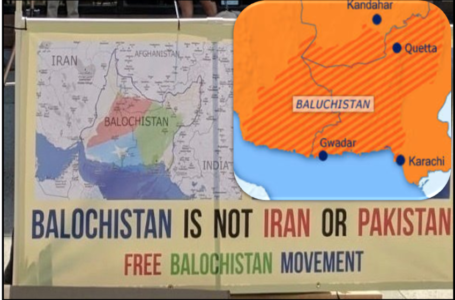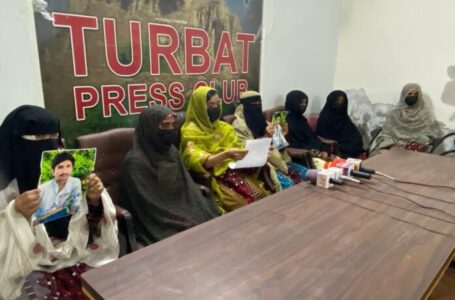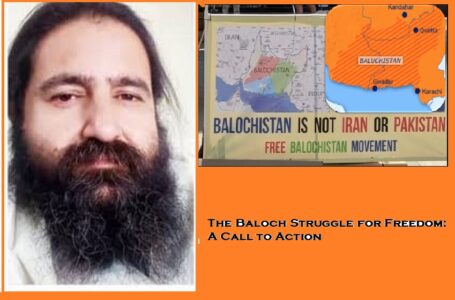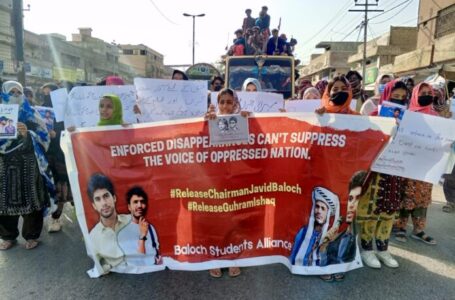The Silence of a Nation: Baluchistan Under Iranian Occupation
It’s in India’s strategic interest to have an ally like free Balochistan
- opinions
- 21st August 2016
- 4 minutes read

By Jamal Nasir Baloch
-
 Protests in London against Pakistani crimes in Balochistan
Protests in London against Pakistani crimes in Balochistan
On April 12, 1931, Spain’s political landscape changed dramatically when Republicans won the municipal election by a large majority. Two days later, the second Spanish republic was proclaimed and King Alfonso XIII left his country.
On the same day, US-based Washington Reporter published a news article titled, ‘list of monarchies has dwindled to a handful’. In the article, the free Baloch state ‘Balochistan’ was mentioned along with Great Britain, Sweden, Norway, Denmark, Japan, Italy and Afghanistan as remaining monarchies.
Balochistan means ‘the state of the Baloch nation’. Mir Ahmed Khan Qambrani III established the first modern Baloch state in 1666, which included all regions of Balochistan. The Baloch were then masters of their own destiny until 1839 when Kalat (then capital) was occupied by British raj and king Mehrab Khan was killed defending the state’s independence along with his Hindu finance minister, Dewan Bucha Mull.
Despite control over Balochistan’s internal and external affairs, Britain never dealt with it like Hindustan. Unlike India, which was ruled by Britain, Balochistan remained a de-jure sovereign state due to Anglo-Baloch treaties of 1854 and 1876.
After World War II, anti-colonial movements in Asia were gaining momentum and it was no longer possible for the UK to rule united India and control Balochistan. Therefore, in August 1947, India was divided, Pakistan was created and Balochistan declared its independence.
Balochistan remained an independent state for seven months until it was occupied by the nascent Pakistani army. Since the illegal annexation, the Baloch people have faced some of the worst atrocities in modern history.
But most of Pakistan’s crimes are unaccounted for. In a decade, hundreds of thousands of people have been internally displaced, 20,000 have been subjects of enforced disappearances, and more than 5,000 innocent civilians and activists have been murdered in army custody, including children like Chakar Baloch and elderly like Shadi Khan Marri.
Surely, PM Narendra Modi’s invoking Balochistan will help the Baloch get international attention at a time when it struggles for existence. Unsurprisingly, all pro-freedom Baloch politicians welcomed Modi’s statement, including the leader of the Free Balochistan movement, Hyrbyair Marri, who termed it a ‘courageous decision’ and asserted that ‘Baloch have never accepted Pakistan’.
The Baloch see India as a friend and natural ally. Pakistan has given China access to Gwadar, which is one of the most militarised regions in Pakistan. It has a 600-km coastline along the Gulf of Oman, where Pakistan built two naval bases and three military cantonments and plans to build another naval base near Khor Kalmat. These installations would not only provide China listening posts to monitor US naval activities in the Arabian Sea but also help China to contain India.
Balochistan seems to be the 21st century’s ignored colony, which has been largely abandoned by the preachers of democracy. Realists argue that states have their own interests and ignore moral grounds when making policy.
Even thinking this way, it is in India’s interest as an emerging power to have a permanent ally like a free Balochistan to take care of one of the world’s most strategic regions.
The writer is a political activist and member of the Royal Institute of International Affairs
jnbaloch@hotmail.co.uk









